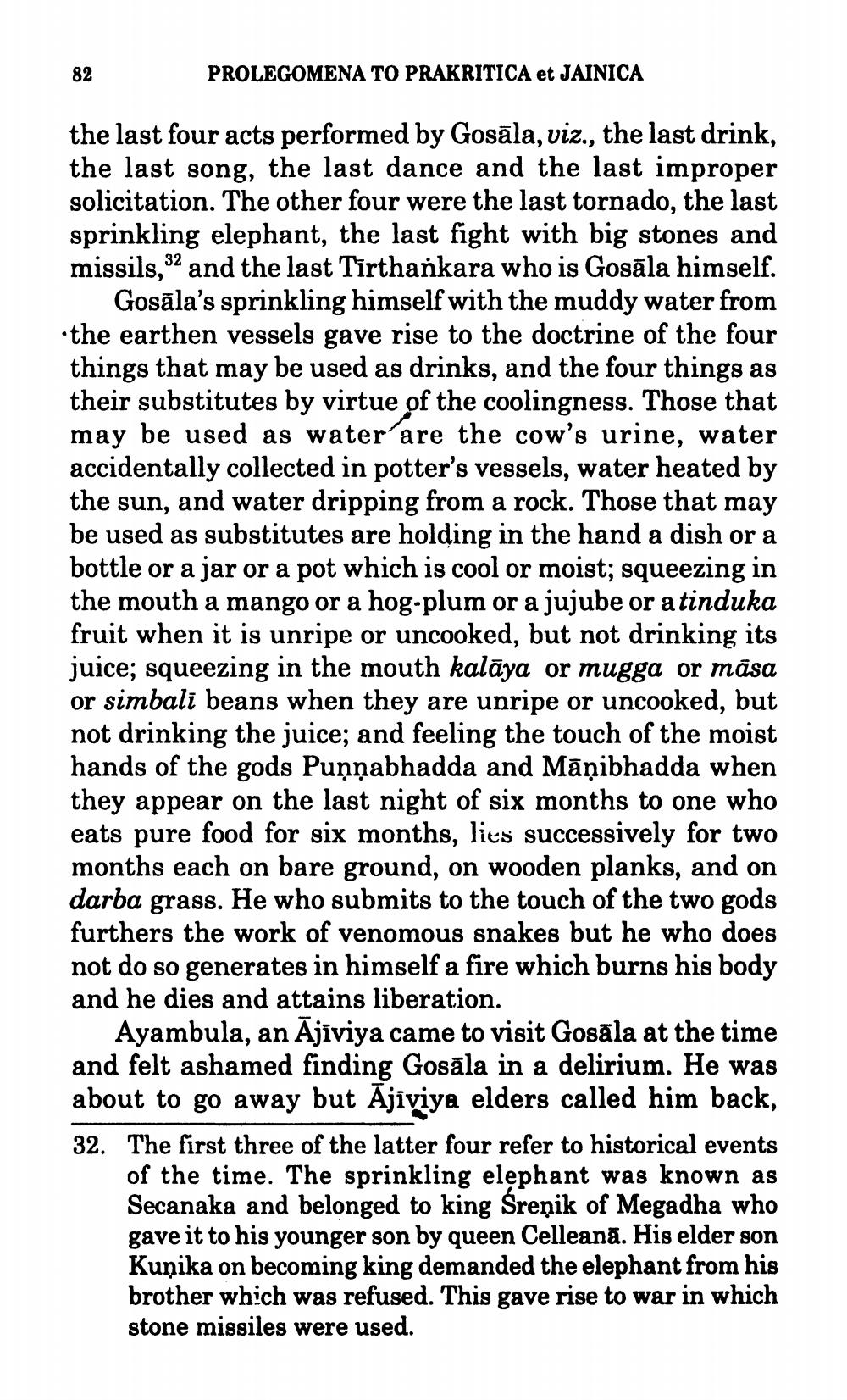________________
PROLEGOMENA TO PRAKRITICA et JAINICA
the last four acts performed by Gosāla, viz., the last drink, the last song, the last dance and the last improper solicitation. The other four were the last tornado, the last sprinkling elephant, the last fight with big stones and missils, 32 and the last Tirthankara who is Gosāla himself.
Gosāla's sprinkling himself with the muddy water from the earthen vessels gave rise to the doctrine of the four things that may be used as drinks, and the four things as their substitutes by virtue of the coolingness. Those that may be used as water are the cow's urine, water accidentally collected in potter's vessels, water heated by the sun, and water dripping from a rock. Those that may be used as substitutes are holding in the hand a dish or a bottle or a jar or a pot which is cool or moist; squeezing in the mouth a mango or a hog-plum or a jujube or a tinduka fruit when it is unripe or uncooked, but not drinking its juice; squeezing in the mouth kalāya or mugga or māsa or simbali beans when they are unripe or uncooked, but not drinking the juice; and feeling the touch of the moist hands of the gods Puņņabhadda and Māņibhadda when they appear on the last night of six months to one who eats pure food for six months, lits successively for two months each on bare ground, on wooden planks, and on darba grass. He who submits to the touch of the two gods furthers the work of venomous snakes but he who does not do so generates in himself a fire which burns his body and he dies and attains liberation.
Ayambula, an Ājiviya came to visit Gosāla at the time and felt ashamed finding Gosāla in a delirium. He was about to go away but Ajīviya elders called him back, 32. The first three of the latter four refer to historical events
of the time. The sprinkling elephant was known as Secanaka and belonged to king Śreņik of Megadha who gave it to his younger son by queen Celleanā. His elder son Kuņika on becoming king demanded the elephant from his brother which was refused. This gave rise to war in which stone missiles were used.




